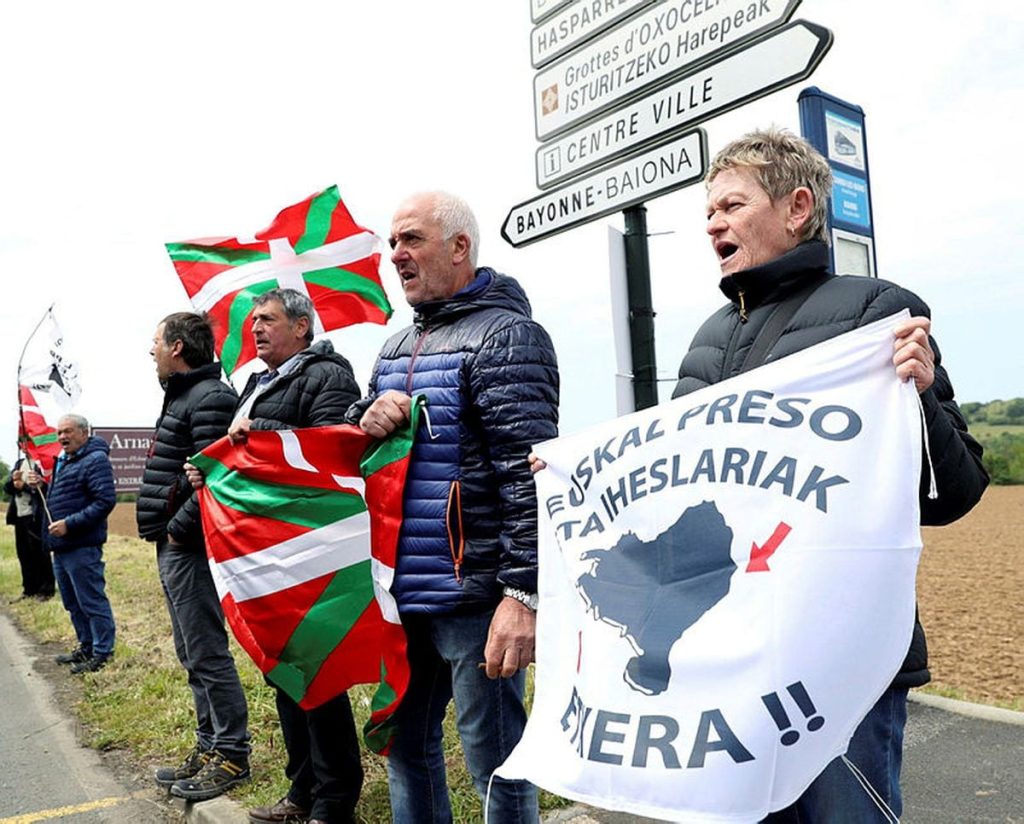In the Basque Country, political assassinations have ceased for over twelve years. Extortion and street violence are also no longer a concern. The worry over ETA is almost zero, as indicated by recent polls. The rejection of political violence is widespread, with 89% of Basques considering it unjustifiable – a ten-point increase from eight years ago. Recognition of terrorism victims, though delayed, is widespread institutionally and socially. The Victims of Terrorism Law is considered exemplary internationally. The political climate in the Basque Country is much more relaxed than at the national level, with debates centered on everyday concerns rather than past identity issues. Consequently, coexistence is ranked 22nd among citizen concerns, with healthcare and housing topping the list.
Despite the absence of material remnants of ETA in the Basque Country, there is a rising concern due to the emergence of EH-Bildu, a coalition whose core, Sortu, has not fully accounted for its past collusion with ETA. However, despite this, many young Basques are expected to vote for EH-Bildu in the upcoming elections, as the party has shown positive evolution in rejecting violence and engaging institutionally. The perception of Sortu transitioning from part of the terrorist problem to part of the solution, pressuring ETA to end terrorism after the failure of the 2006 dialogue process, has resonated with voters.
EH-Bildu has benefited from a lack of memory among the youth, as many families have chosen to forget the violent past to protect their children. The educational system in the region has also failed to address this absence of memory, with a significant portion of Basques self-censoring to avoid uncomfortable situations. There is a deficit in education regarding the memory of terrorism, the Civil War, and Francoism, with efforts to promote victim education experiencing limitations. Despite this, literature, cinema, and media in the Basque Country have endeavored to highlight the memory of victims.
The solution to the issue lies in politics, requiring Sortu to engage in self-criticism regarding its past involvement with ETA. However, challenges have emerged from the conservative side, with Vox obstructing democratic memory policies on the Civil War and Francoism. Additionally, unresolved murders from ETA and the dirty war against the group remain a lingering legacy, with only a fraction of cases eligible for investigation under current laws. Efforts to classify ETA attacks as crimes against humanity or genocide have failed, with calls for victims to seek truth and repair persisting.
In prisons, 155 ETA prisoners remain, mostly serving long sentences in Basque prisons near their families. Associations advocating for prisoner rights have sought to reduce sentences through changes in legislation or easing of penitentiary regimes. Despite the defeat of the terrorist organization, some historians argue that ETA is not entirely delegitimized, emphasizing the need to build coexistence on truth. As victim Gorka Landaburu puts it, before turning the page on this dark chapter, it must be thoroughly read.


